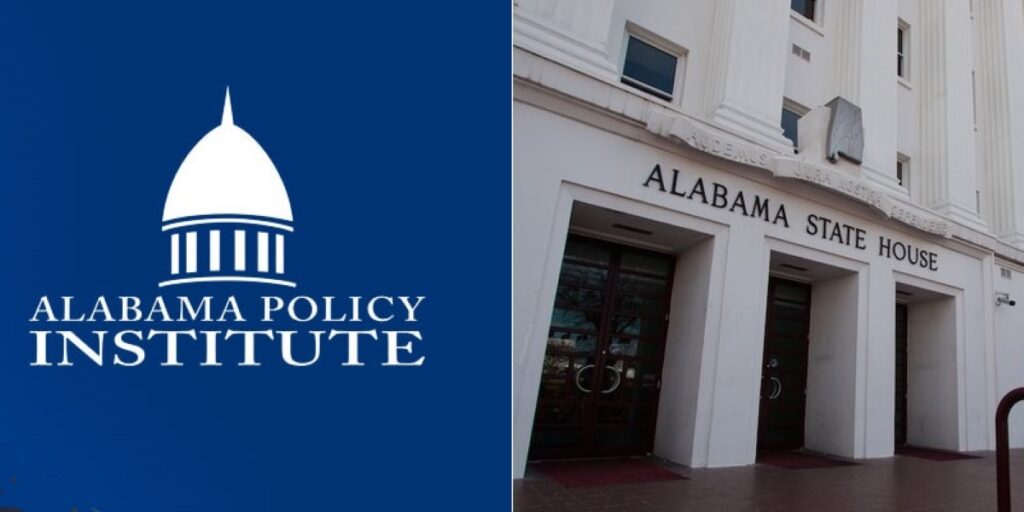An open letter to lawmakers
Published 8:00 am Monday, February 19, 2024
|
Getting your Trinity Audio player ready...
|
An opinion of the Alabama Policy Institute
As professionals and advocates who are combating and counseling victims of human and sex trafficking across the State of Alabama, we would like to respectfully ask that you take into consideration how the proposed increase in the number of brick-and-mortar casinos in HB 151 (House Bill) and HB 152 would negatively impact human trafficking statewide.
Human trafficking, frequently referred to as a ghost crime, occurs in plain sight within casino and resort properties, but it remains largely unseen because the indicators of this crime are invisible to most. See https://www.asisonline.org/security-management-magazine/latest-news/online-exclusives/2022/human-trafficking-in-casinos-the-ghost-crime-operating-in-plain-sight/.
Human trafficking thrives around the world despite growing awareness of the problem. Globally, an estimated 40.3 million people were victims of human trafficking according to statistics compiled by the Global Slavery Index. In the United State, between 14,500 and 17,500 people are victims of human trafficking each year. In Alabama, according to the Global Slavery Index, there is an estimate of more than 6,000 human trafficking victims every day in Alabama, including forced labor and sex trafficking. See https://humantraffickinghotline.org/en/statistics/alabama.
According to the International Labor Organization (ILO), human trafficking is estimated to be a $150 billion industry each year. In Las Vegas, the problem centers around casinos and hotels. Caesars Entertainment signed on to a partnership with two global organizations that lead the fight to prevent and eradicate the issue.
The Department of Homeland Security created a Tribal Gaming toolkit to raise awareness of Human Trafficking at Tribal Casinos. The toolkit is a multi-agency collaboration between the National Indian Gaming Commission (NIGC), Bureau of Indian Affairs (BIA) and the Departments of Homeland Security (GHS) and Treasury to raise awareness concerning human trafficking. It was created at the request of tribal leaders and tribal employees; the toolkit provides first-line tribal gaming and hospitality employees with information on how to detect, report, and ultimately prevent human trafficking.
Research indicates that when men gather to spend money on leisure, including paid sex, it necessitates filling that demand. In Hawaii, when a proposal was brought forward to build a casino in 2021, a state agency that works toward equality for women and girls issued a blistering report outlining the ills associated with casinos, particularly as they relate to the sex trade. That report outlined that, “prostitution and casinos go hand-in-hand because casinos draw a large presence of men with money to spend on leisure and relaxation, including paid sex, which impacts the number of prostituted people required to be brought in to meet the demand.” The nine-page report concluded that men who gamble are more prone to purchasing sex, and that a casino would likely increase domestic violence toward women, prostitution and sex trafficking. See https://humanservices.hawaii.gov/wp-content/uploads/2021/02/1.26.21-r2.1.21-GIS-FINAL_DHHL-Casino.pdf.
In addition, the report pointed to national research that suggests links between casino gambling and sex buying. A 2010 study funded by the U.S. Department of Justice and UNLV found a positive correlation between casinos and paid sex. In fact, the report states that, “casino patrons were 17% more likely than the average survey respondent to have paid for sex in the past year.” See https://www.ojp.gov/pdffiles1/ojjdp/grants/249956.pdf; https://humanservices.hawii.gov/hscw/hscsw-gambling-report/; and https://www.staradvertiser.com/2021/02/02hawaii-news/casino-could-increase-sex-trade-report-warns/.
Those classified as problem gamblers were, on average, 84% more likely to use hard drugs; 31% more likely to binge drink; and 260% more likely to hire a prostitute. See https://journalistsresource.org/home/young-gamblin-drinking-drugs-prostitution.
The American Gaming Association admits that gaming operations have been used to facilitate human trafficking. In particular, physical casinos or resorts can be locations for trafficking to take palace, while casinos and online gaming apps can be used to launder money related to trafficking operations. The AGA asserts that casinos and hotels are optimal environments for human trafficking, especially if the property allows for cash payments, does not require ID checks or similarly lacks security procedures.
The association admits that online gaming apps with chat functions may also be used by traffickers to recruit victims. In addition, major events, such as championship games, music festivals, trade shows or conferences have resulted in increases in sex trafficking. The increase in demand and patronage at properties requires casino employees to be extra vigilant during these events.
The AGA claims that casinos are exploited by traffickers to launder their proceeds through the exchange of money for chips, and the use of online accounts to receive payment for commercial sex. See https://americangaming.org/wp-content/uploads/2022/06/AGA-Preventing-and-Combating-Human-Trafficking-in-the-Gaming-Industry.pdf.
It is clear that human and sex trafficking is a multi-billion-dollar industry and that it is widely understood by advocacy groups, the American Bar Association, the Department of Homeland Security, the U.S. Department of Justice, a multitude of studies and even the gambling industry itself that casinos in the State of Alabama will increase the number of human trafficking victims. We urge you to re-consider the expansion of casino gambling in the State of Alabama and ask that you take the crime of human trafficking seriously.
Sincerely,
Sherrie Hiett, Family Services of North Alabama
Chris Ziebach, founder and director of Camille Place
Carolyn Potter, director of The Wellhouse
Kathryn Guthrie, Worthy 1
Barbara Fowler, Fowler Davis 4 Change
Alexa JaMES, Blanket Fort Hope
Malea Stephens, Rescue Innocence Movement






